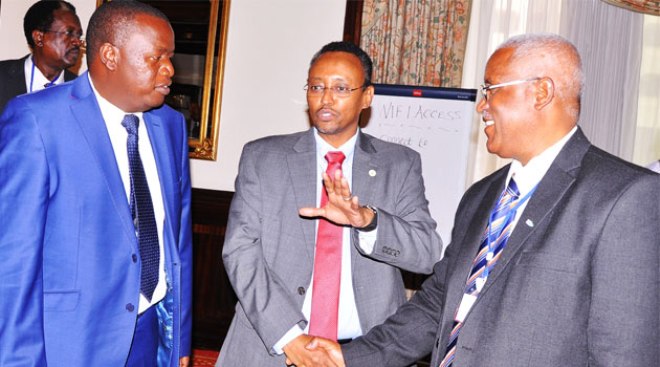IGAD validates strategy aimed at addressing climate change

The IGAD Regional Climate Change Strategy which aims to address human induced climate change in the region has been validated.
The strategy which aims to support member states in their effort to follow low carbon climate resilient sustainable development was validated during a two day workshop held in Nairobi this past week.
The strategy also aims to identify and prioritize the major climate challenges and opportunities in the region and strategic areas of interventions.
Charles Sunkuli the Principal Secretary in the State Department of Environment, Natural Resource and Regional Development Authorities said that the validation comes at a time when the IGAD region has been identified as being among the most vulnerable to the impacts of climate change, as manifested through an increase in the frequency and magnitude of extreme events such as droughts and floods.
Director of IGAD Climate Prediction and Applications Centre Dr Gulied Artan stated that the validation is just in time when all nations in general and developed country parties in particular have adopted an ambitious agreement dubbed the ‘Paris Agreement’ to limit the global warming below 2°C.
“It also came at a time when the region was missing a regional climate change strategy that could be used to harmonize and consolidate national and regional efforts and focus on adaption to climate change consequences as well as on mitigation measures,” said Artan.
“The initiative of IGAD Regional Climate Change Strategy 2016-2030, came at a time when the international community is celebrating the positive outcome from the 21th Conference of Parties (COP21), held in Paris, France in December 2015,” he added.
Other issues that the strategy addresses include both, mitigation – which seeks to address the root cause of human induced climate change for example lowering the carbon foot print – and preparing for the inevitable global warming.
“At all levels there needs to be capacity building, financial support and enhancing of technical capacity to implement this strategy,” reads part of the statement from IGAD.
Kenya has however not been left behind as far as efforts to talk climate is concerned; “In Kenya efforts have been made to mainstream climate change into the national development agenda through the second medium term plan of 2013-2017 period. Kenya submitted her Intended Nationally Determined Contribution (INDC) to the UNFCCC in July 2015,” said Sunkuli.
The East Africa